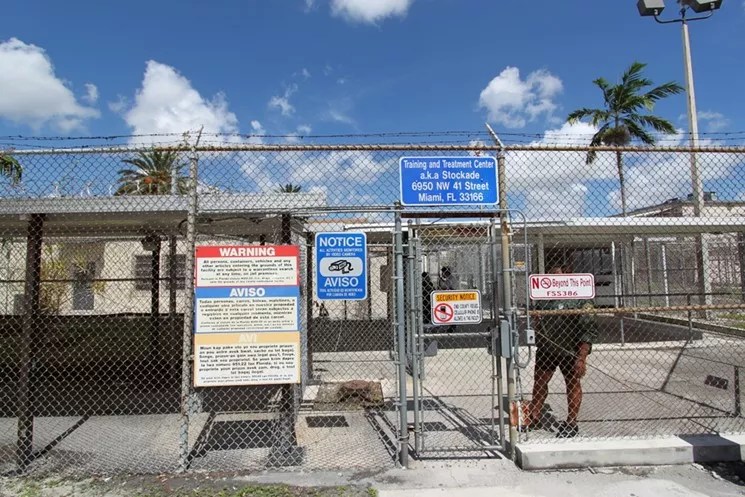
Photo by Theo Karantsalis

Audio By Carbonatix
The proposal to build a $400 million-plus jail in Miami-Dade County has been met with intense scrutiny from criminal-justice reform advocates, members of the public, and elected leaders.
Now, dozens of medical students, scientists, and resident physicians from the University of Miami (UM) and Florida International University (FIU) have joined the chorus of opposition to the county’s plans to replace the aging Pretrial Detention Center, a facility that the Department of Corrections & Rehabilitation says poses a hazard to inmates and staff.
The new jail would have the same 1,400-bed capacity as the Pretrial Detention Center. The facility would also include a 556-bed intake and release center, a mental-health treatment center, a medical clinic, a building for food and laundry, a video visitation center, four courtrooms, and office space for prosecutors, public defenders, Miami-Dade police, and the clerk of courts.
In a letter sent to Miami-Dade commissioners last week (embedded below), the coalition of nearly 100 future and current medical professionals called on officials to reject the proposal for the new jail complex.
“We think it’s bad for public health,” says co-author Michelle Caunca, a fourth-year medical student pursuing a doctorate in epidemiology at UM. “We don’t think we need a new jail in our system, especially in the middle of a crisis like coronavirus.”
Rather than fund a jail, the coalition urged commissioners to make greater financial investments in housing, mental health services, healthcare, education, social work, and food banks.
“This money is better spent on improving our communities and not exacerbating the racist systems of incarceration in this country,” the letter reads. “Black and Brown people are more likely to be incarcerated compared to white people, and this has been consistently related to worse health outcomes overall. This has been most recently shown during the COVID-19 pandemic, where outbreaks in jails forced governments to release inmates in an effort to quell the spread of infection.”
In May, the Miami Herald reported that almost 500 inmates in county jails had contracted coronavirus. Miami-Dade Corrections has cut the jail population by more than 1,000 in recent months because of the virus.
Some of the students argue that while it shouldn’t take a pandemic for a corrections department to release inmates who could reasonably be freed, it indicates that reducing jail populations is possible and that more efforts should be made for the well-being of inmates.
“It shows that we can decarcerate a large amount of people, and it’s a safe thing to do,” says Christopher Garcia-Wilde, a third-year medical student at UM who co-authored the letter. “It’ll not only reduce outbreaks in jails, it’ll reconnect people with their families, communities, and healthcare providers.”
Citing research by the American Public Health Association that declares mass incarceration and police violence to be public-health issues that result in “deaths, injuries, trauma, and stress that disproportionately affect marginalized populations,” the coalition also urges commissioners to divest money from the Miami-Dade Police Department’s $770 million-plus budget.
“It might be the time to relieve the burden on law enforcement and jails when certain tasks should be placed with people trained to deal with substance abuse and mental-health problems,” says Brea Willey, a UM medical student.
In the letter, the group says that reforms such as police oversight boards, training, and policy changes surrounding police practices seem positive, but from a public-health standpoint, police reform isn’t enough. Local governments need to address inequalities in their communities and meet the needs of the underserved and overpoliced, the authors argue.
Willey says she, her brother, and other members of her family have experienced police harassment.
“I realized this has been an ongoing generational trauma that has impacted my family and other families of color,” she tells New Times. “This is something that impacts our mental well-being. We need to see how we can address this issue in a way that’s equitable and collaborative with all vulnerable communities.”